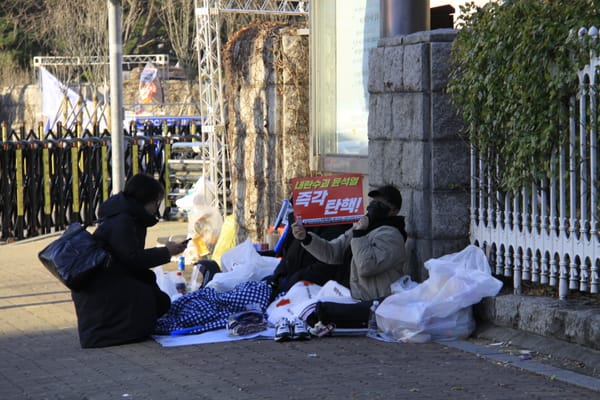Asia Undercovered 23 July 2020
We have a new, better designed logo! Scroll down to see it. It’s in preparation for our paid subscription launch in just two weeks. More details on that in the next issue.
Uyghur Genocide Update
Increasingly, it’s being called a genocide, due to a preponderance of evidence. This week’s big story confirmed suspicions from earlier this year – China was moving Uyghurs during the pandemic, to forced labor situations around the country. Coda Story went through Chinese social media to find videos revealing the migration (Isobel Cockerell)
Meanwhile, this piece in Global Voices by Filep Noubel reminds us that repression has, in fact, existed in Xinjiang for decades. In it, he writes about the traditional Meshrep, a Uyghur gathering that was banned by Chinese authorities back in 1995, but lives on among Uyghur communities abroad.
Also Undercovered this week
The latest terrible law has come into effect in The Philippines. This one is an anti-terror law that takes a broad definition of “terrorist” including “provoking or influencing by intimidation the government or any international organizations” (Rappler).
In Indonesia, more and more people are starting to look back at the dark history of slavery and racism that took place during the colonial era, where many Africans were sent to the then-Dutch colony to work in plantations. An engaging, eye-opening piece by Budiman Minasny for The Conversation.
A sign of the times in Cambodia. The Prime Minister’s former bodyguard, formally sanctioned by the United States for human rights abuses, has been promoted and is now supreme advisor to four top-ranked monks. In some countries in Asia, crime does pay, sadly (Mao Sopha and Torn Chanritheara, Cambodianess)
In Hong Kong, the pandemic has forced the city’s so-called “McRefugees” back on the streets. They used the fast food chain as a shelter are left without options when businesses close (Hong Kong Free Press).
Some hopeful news – last week saw a mass protest against dictatorship in Thailand, led by students. Here’s a recap of the event, which saw 2000 attendees, along with photos from Prachatai.
Similarly, in Pakistan, locals are opposing a China-funded coal mining project that they fear would disrupt their livelihoods and harm the surrounding environment – another sign of growing, grassroots opposition to megaprojects (Zofeen T. Ebrahim, The Third Pole)
Politics
It’s hard to believe that the new government in Malaysia has only ruled for a few months. The reason that it feels like so much longer is because, as William Case argues in this analysis for East Asia Forum, that the pandemic has been a political accelerator. The minor advances in civil liberties that had been made earlier have already been rolled back, oppression is on the rise, and patronage politics are firmly back in Parliament.
And some history as we approach Myanmar’s November election – which many expect to see another landslide for the ruling National League for Democracy.
Geopolitics
India’s pro-government media has been attacking Nepal for overly close ties to China. This piece by Kunal Purohit digs into why so much of Indian media is mimicking the government line, and what it means for a tiny country caught between two giant neighbors.
Solutions Stories
The Baduy in Banten, Indonesia, live without technology, soap, shampoo, or other modern conveniences, but welcome tourists. Well, not technically – they've replaced the word “tourism” with a local term meant to convey “communal cultural bonds” between tribe members and visitors (The Jakarta Post).
K-Pop from South Korea is a global success, and a growing cultural phenomenon. But all is not well, argues Brandon Tan in The Monsoon Project. The industry needs reform to tackle the sinister exploitative practices hidden within.
Asia Undercovered: Journalist Nithin Coca’s weekly roundup of the news, events, trends and people changing Asia, but not getting enough attention in the US media.



